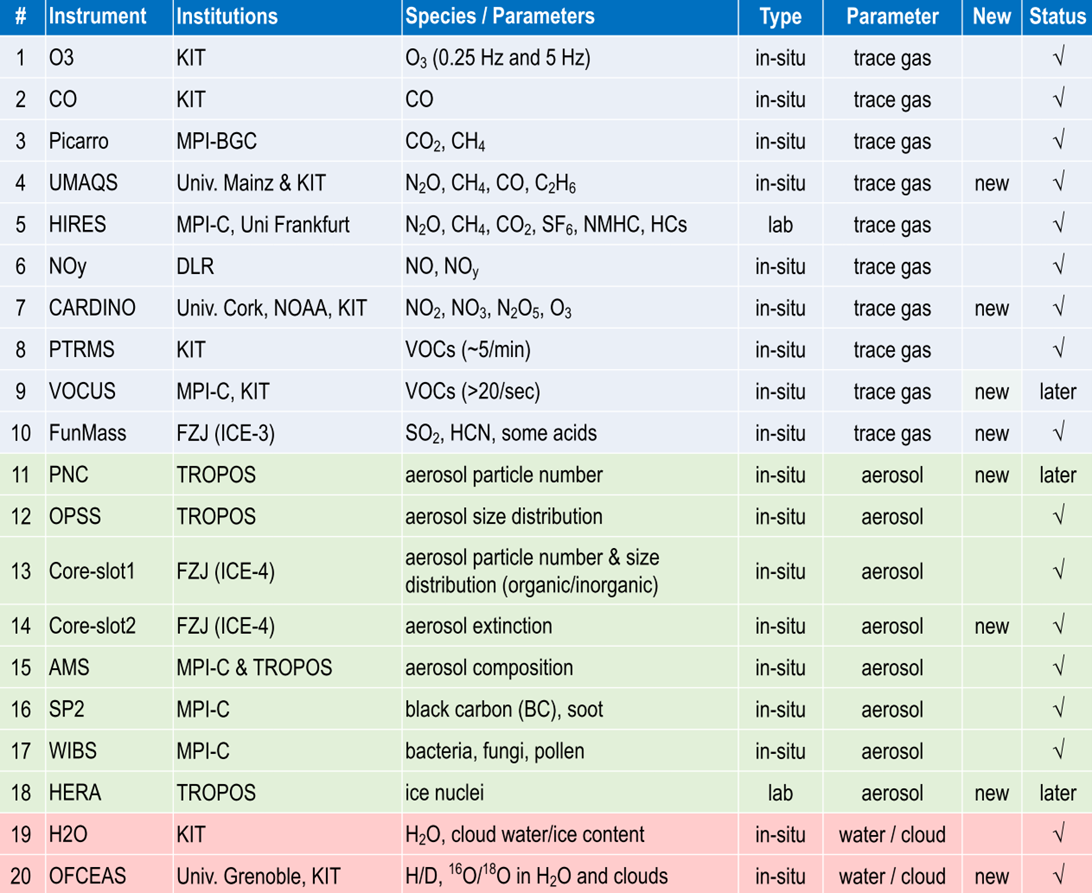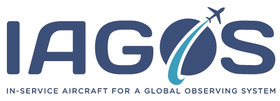
IAGOS - CARIBIC
- Contact:
Andreas Zahn
- Project Group:
- Funding:
BMBF, KIT, project partner
- Start Date:
2005
- End Date:
permanent
IAGOS-CARIBIC: Research using commercial passenger aircraft
IAGOS (In-service Aircraft for a Global Observing System) is a European research infrastructure that operates scientific instruments on board of commercial passenger aircraft.
Its mission is to provide high-resolution high-quality data about the atmospheric composition from the Earth’s surface up to 13 km altitude.
.. the Technology
In IAGOS-CARIBIC we operate a complex laboratory filled with up to 20 instruments in the cargo bay of a modified Airbus by Lufthansa, see figure.
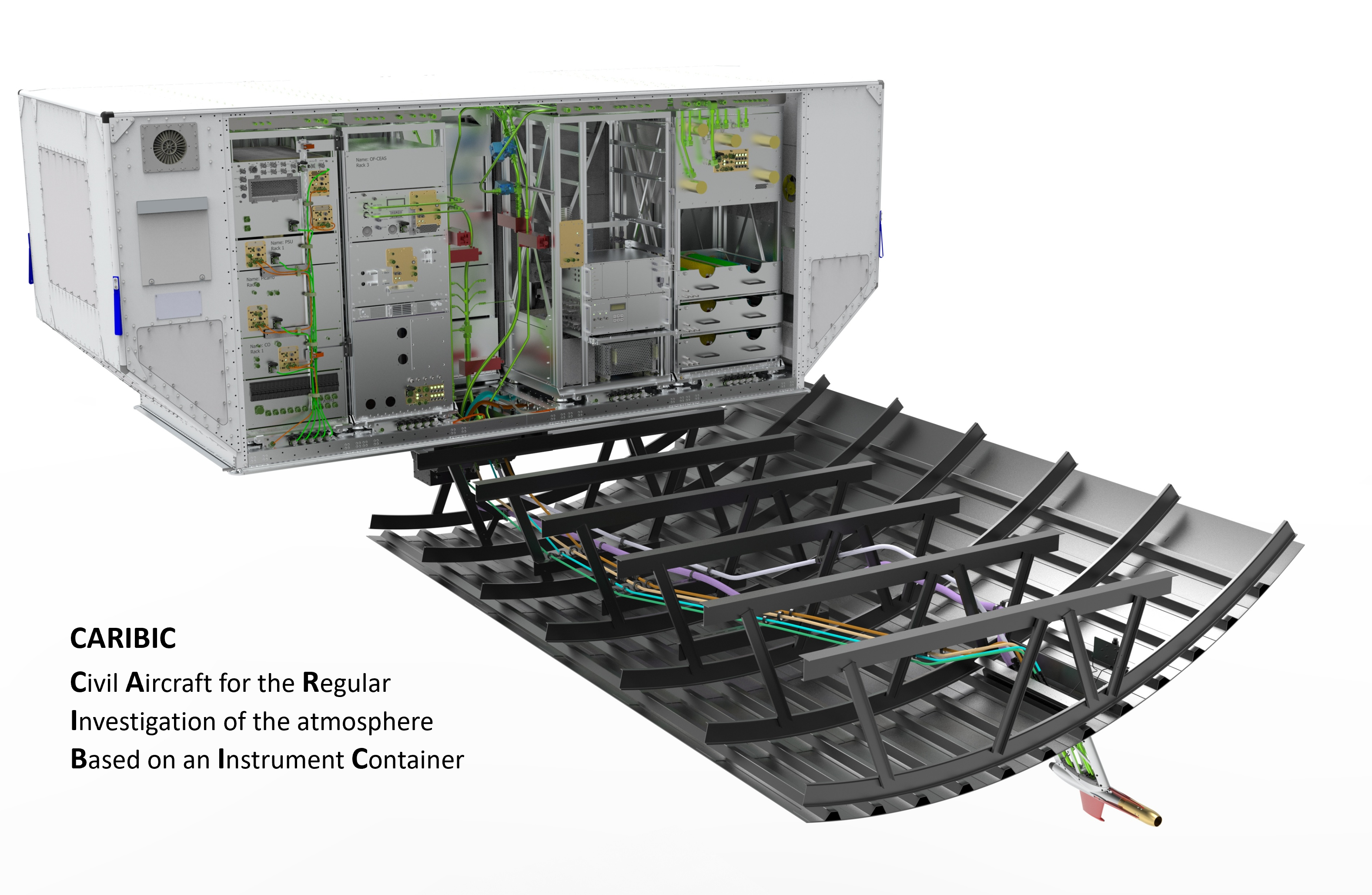
While passenger enjoy their flight, the CARIBIC laboratory (fully automated) measures around 100 trace gases, cloud and aerosol parameters and (as of 2026) send data directly down to ground (via satellite) for immediate use.
… the Vision and Objectives
With IAGOS-CARIBIC, we address an increasingly pressing observational gap, that is, the lack of systematic high-resolution (“atmospheric process-resolving”) multi-tracer data for validating the process description of Earth system (climate) models and for training machine learning algorithms.
Overall objectives are:
- to improve the understanding of climate-relevant processes,
- to improve the performance of climate models and
- to improve their predictions on future weather and climate on Earth.
… our Role
We coordinate IAGOS-CARIBIC, maintain the laboratory infrastructure systems as well as the instruments provided by (currently) 12 research groups in Europe and run six own instruments (partially together with other groups), more.
We closely cooperate with the research data management (RDM) group and the model (MOD) group for providing and scientifically analyzing the data.
… the History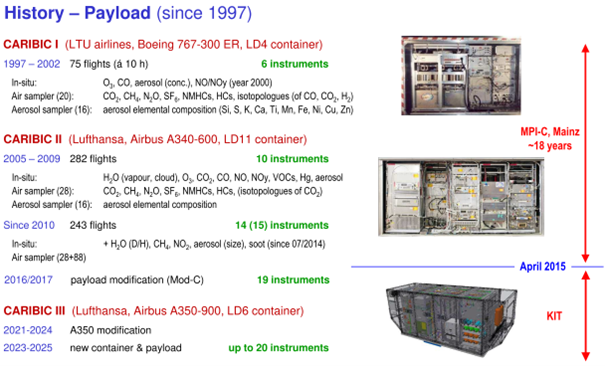
CARIBIC was initiated as research project in the 1990ths by the noble prize winner Paul J. Crutzen, with first flights in 1997 using a Boeing 767 by LTU airlines and coordinated by the Max-Planck-Institute for Chemistry. Thereafter, Lufthansa stepped in and a more complex CARIBIC system was operated on an Airbus A340 which was prematurely phased out in April 2020 due to the disruptions triggered by the Corona Pandemic.
Since then we modify a new Airbus A350 by Lufthansa and built up an even larger and more sophisticated CARIBIC laboratory that will fly as of early 2026, see figure and “Link to Status and News”.
… Status & News
Since the phase-out of the Airbus A340-600 in April 2020, we work on the move to an Airbus A350-900 by Lufthansa, see setup and the major three steps in the figure.
Current status is: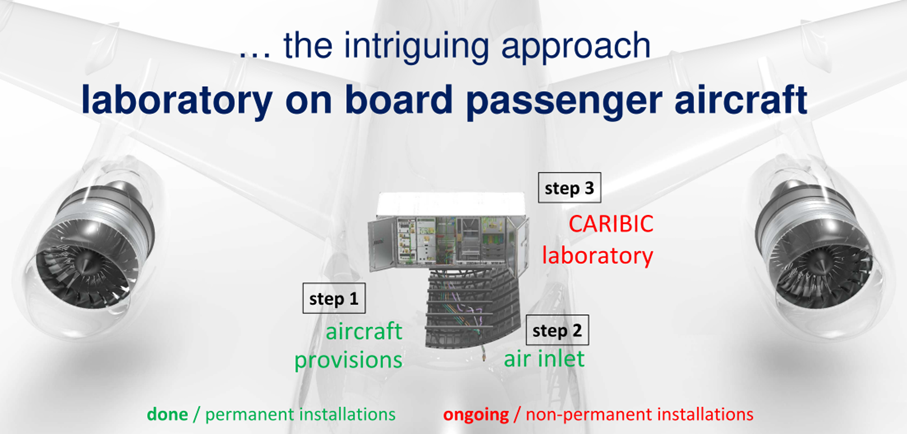
- The aircraft has been modified between 2021 and 2023 (step 1) and the new air sample inlet constructed and flown (step 2).
- The new CARIBIC laboratory (step 3) is in construction as of summer 2024.
- Its airworthiness certification at the European Union Aviation Safety Agency EASA is very demanding and we expect the restart of flights in early 2026
The foreseen payload for the CARIBIC laboratory on A350 is listed below.
